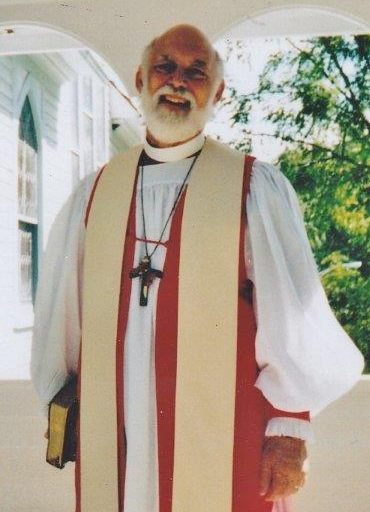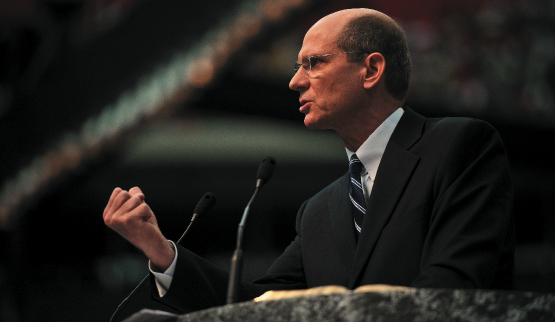I sat in the pew of an Episcopal Church one Sunday morning some years back, when a bishop of local renown came in to do clean up with very disturbed parishioners. He had recently
returned from a conference where the Episcopal Church had voted to begin ordaining homosexual clergy. The members were on the verge of splitting over the decision.
I was visiting, observing with some interest. In the bishop's homily, he stressed that at this critical time in the church the most important thing was for everyone to stay calm and remained unified. It was the dark forces that were trying to split the church. He urged that this issue was not important enough to cause disunity. He gently shamed and humorously mocked the listeners who were not on board for homosexual clergy. It was subtle, but those paying attention noticed how he claimed his side as Biblical and "after all" we all want to be like Jesus: being accepting, loving, non-judgmental, eating with sinners.
What was most remarkable was his admonishment to the crowd to persevere with the church no matter what, even if you vehemently believe what the bishops did was against God.
"It is vital that we stay unified."
Internally, I chuckled with amusement.
Seriously? Stay unified? Of course this is going to split the church.
Americanism is seeped with the idea of individual religious freedom. How can a Episcopalian bishop, born from the family of the Anglican Church who broke with the Catholic Church, seriously suggest that if one has a moral disagreement with one's church that unity should prevail over personal conscience?
Yesterday, I heard a similar argument coming out of the Seventh-day Adventist Church. There was recently a committee of church leaders discussing what the church should do about women's ordination.
"It's not a big deal if a woman is ordained, don't make it an issue that you will break with the church."
Don't be naive. Of course this issue is going to split the church. Look at history, people have left their church and started a new one over a lot less.
"Women's ordination is not a given doctrine like the Sabbath. Let's not forget what is important here."
These types of comments have come from many a mouth, about many a theological dispute, in various denominations and it simply means that the person thinks they know what is important in God's eyes better than others.
Some people have viewed indulgences as so sinful that it was worth breaking with the church. Others the sacrifice of the mass, or baby baptism, or racism, or what day you rest on. For some Adventists to say that women's ordination should not be important to other Seventh-day Adventists is betraying a great deal of arrogance and is a stealthy swipe against their neighbor's conscience.
denominations in the throws of theological battles. There is a call for unity as if unity were all of a sudden important for their church. As if unity were a priority for Protestants.
Does a Seventh-day Adventist that is convicted the Bible clearly forbids a woman to be ordained submit their conscience to the church? That is not a popular mindset among Protestants. It is interesting to watch yet another church reach out and use unity to intimidate or at the least pressure people to remain in their denomination. Especially when they use the authority of their leaders in such a Catholic way. "We know best, your reading of scripture is wrong. Have faith in your church's leadership."
If a Christian promotes unity above personal conscience as ultimate authority, then he needs to go back and be a Catholic. Protestants have a hard time swallowing the unity plea when their denomination was founded upon a series of splits over these types of issues.
Protestants need to rethink the importance of unity. What is a grave enough matter to split the body of Christ? When is it more important for a house to stay undivided? Time we look into this before a crisis.
There was a house built upon a rock and the rains came and the house stood. There was a house built upon thousands of tiny little broken up rocks. And when the rains came, the house fell.




